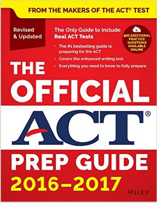Over the past 8 years, as the SAT has undergone two massive updates, the ACT has generally remained static in the turning world of college admissions. Any changes to its format have been comparatively minor, making it relatively straightforward to prepare for. But, as of July 15th, 2024, the ACT has announced some fairly extensive changes that will be rolled out in 2025-26. In this article, we will summarize those changes and consider how they might impact a student’s decision to take the ACT vs. the SAT.
COllege Admissions News and ACT / SAT Strategy
Stay current with the latest undergraduate college admissions news and proven ACT and Digital SAT strategies.
Posts about ACT overview:
Digital ACT vs. In-Person ACT: Which Is Better?
Since 1959, the ACT has helped high school students demonstrate college readiness and qualify for scholarships. But in February 2024, ACT (which is also the name of the organization that designs and administers the exam) launched its biggest change in years: offering a digital version of the ACT as an optional alternative to the classic pencil and paper exam format.
ACT Science: Extracting Signals Through Noise to Improve Your Score
“Ever thought about taking the ACT?”
A Guide To ACT Scoring
Understanding how the ACT is scored is one of the most fundamental aspects of taking the test. Before even stepping foot into the classroom on test day, knowing the scoring for the ACT can help you to outline your studying and set realistic score goals as you are planning for the big day. Let’s dive into our guide for ACT scoring and what you should know right now:
Designing an ACT Study Plan? Here are our Recommended ACT Study Materials
 When designing an ACT study plan, one key question is “what materials will I use?” Luckily, the most effective material is also the most inexpensive (more on that later).
When designing an ACT study plan, one key question is “what materials will I use?” Luckily, the most effective material is also the most inexpensive (more on that later).
To begin, it’s helpful to ask yourself one basic question: am I fundamentally comfortable using online materials or not? There are many web-sites and “apps” available to help you prepare for the ACT. But for some people, plain old paper and pencil is still their preferred way to learn. I tend to encourage students to at least consider an online approach, since it’s generally very convenient and because many online resources are “adaptive,” meaning they give you suggested practice content based on how you’ve performed on previous practice problems to build on your strengths and address your weaknesses. But, if an online approach just isn’t for you, don’t force it.
